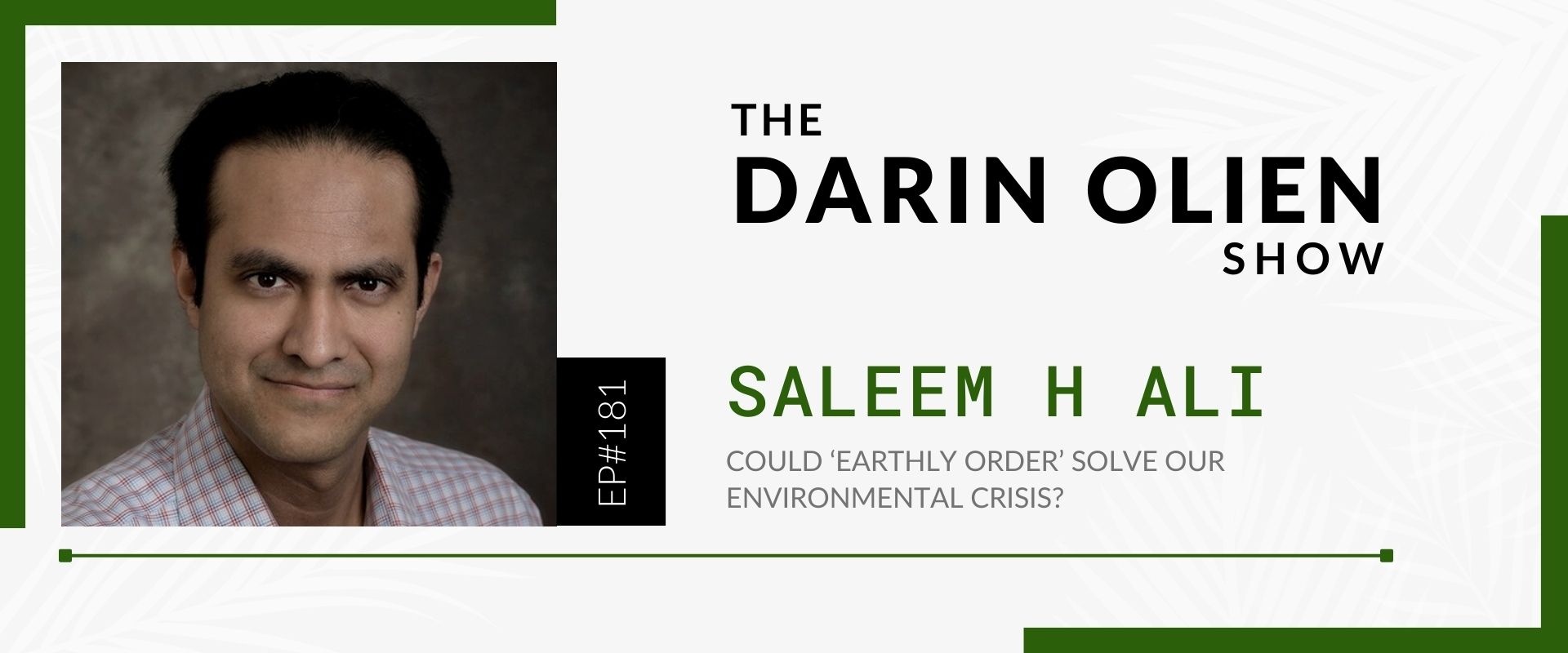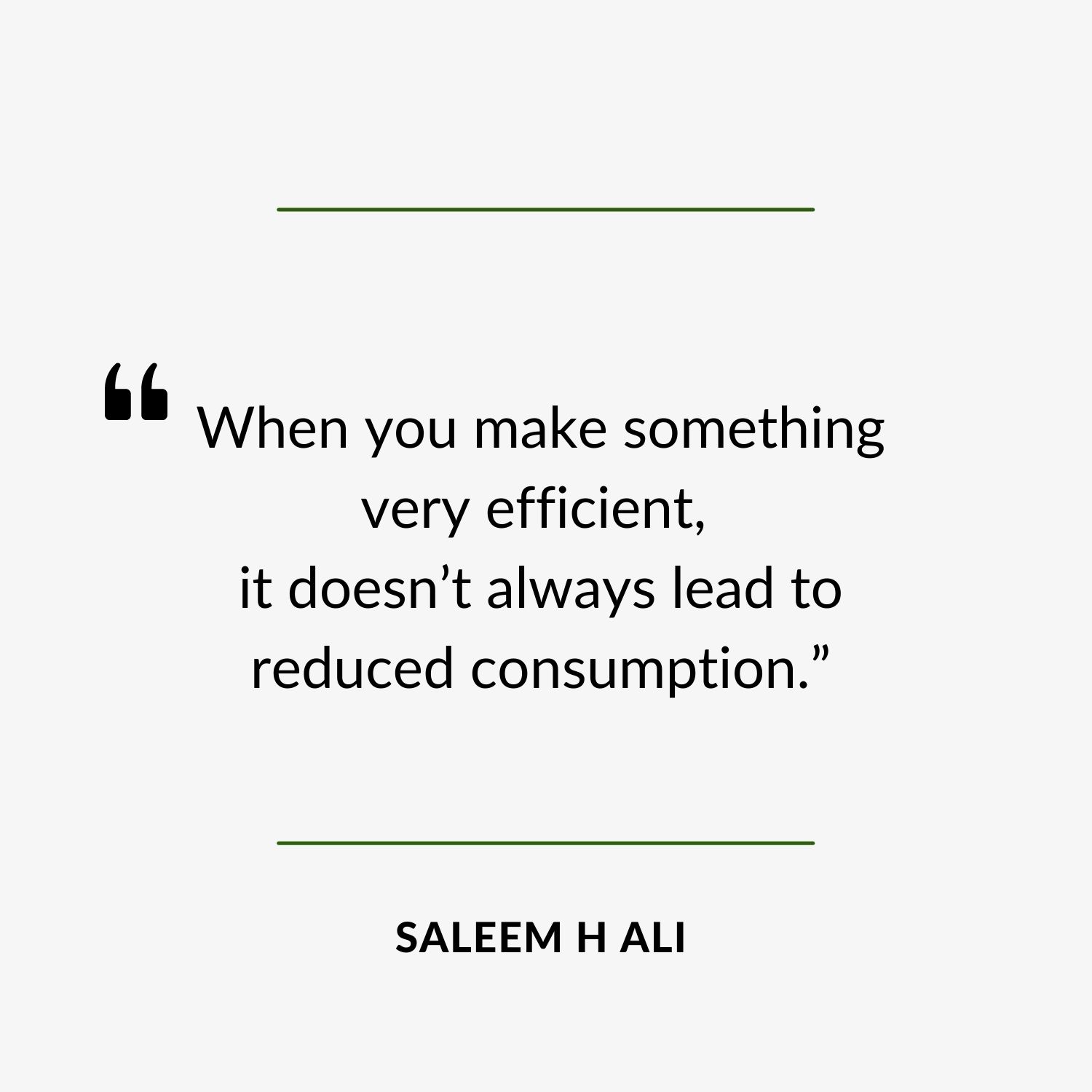29 Jun Could ‘Earthly Order’ Solve Our Environmental Crisis? | Saleem H Ali

Podcast: Play in new window | Download
Subscribe: RSS
Although nature doesn’t directly determine human fate, it’s important that we understand how natural laws affect our lives. Understanding Earthly Order can help us effectively spark change.
WELCOME TO THE DARIN OLIEN SHOW
Saleem H Ali wants you to understand the Earthly Order. 
Although he was born in Massachusetts, Saleem Ali grew up in Lahore, Pakistan until his college years. He received his Bachelor’s degree in Chemistry from Tufts University, followed by his Masters and Ph.D. degree in environmental policy and planning at Yale and MIT. He currently holds the Blue and Gold Distinguished Professorship in Geography and Spatial Sciences at the University of Delaware (USA) and is an Honorary Professor at the University of Queensland.
Dr. Ali has traveled to over 150 countries for his research on Earthly Order and environmental issues. And he has been chosen as a Young Global Leader by the World Economic Forum. He is a Fellow of the Royal Society of Art and the Royal Geographical Society in the United Kingdom. Saleem also serves on the boards of Adventure Scientists and Mediators Beyond Borders International. His upcoming book, Earthly Order: How Natural Laws Define Human Life reflects his global research and ever-expanding knowledge on the subject.
I loved this conversation,
and frankly, I could speak to Saleem all day! A lot of my gripes with the environmental movement is that focus isn’t where it needs to be. It’s great to have someone on the show that shares that sentiment and can articulate it so beautifully. In this episode, Saleem helps break down the phenomenon of the “rebound effect”. When we overuse products that are supposed to be “efficient”, like electric cars, we can actually be worsening our environmental impact. Instead, we should be using the concept of Earthly Order to make more science-based decisions. According to Dr. Ali, humanity has either tried to conquer or capitulate to natural order. But what we should actually be doing is seeking to understand latent structures and patterns that permeate all systems and develop an earthly order that is socially functional and sustainable. This may sound complicated, but it’s actually as simple as you can get!
BREAKDOWN
[00:09:03] What is Earthly order?
[00:16:05] Are electric cars going to save the planet?
[00:22:39] The impact of social decisions
[00:26:50] Using Earthly order to shape our future
[00:36:22] Nature does not determine human fate
[00:43:10] What can Earthly order do for you?
I hope you enjoyed this episode of The Darin Olien Show! If you want to support or follow the podcast, here’s how:
Subscribe, rate or listen on Apple, Spotify, Stitcher
Follow my Instagram to keep updated on the podcast, weekly deep dives and other projects that I’m supporting (and the occasional Chaga appreciation post)
Sign up for my Weekly Email to keep up with what I’m tuned into.
For feedback or suggestions, email my team at [email protected]
Find the list of brands & products that get the big tick of approval from me here.
Comment below to join the discussion!
Podcast: Play in new window | Download
Subscribe: RSS




Sorry, the comment form is closed at this time.